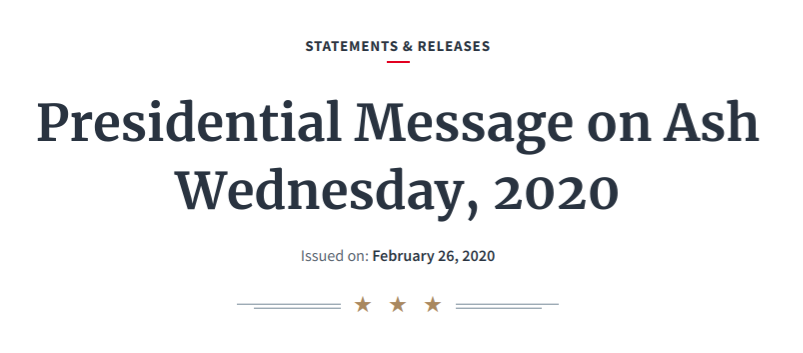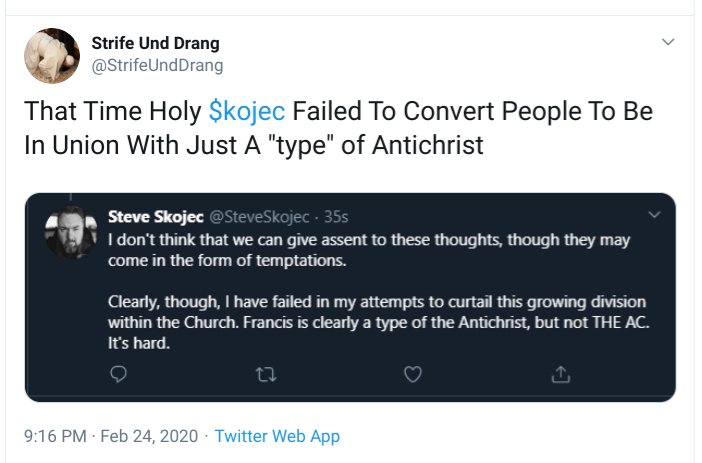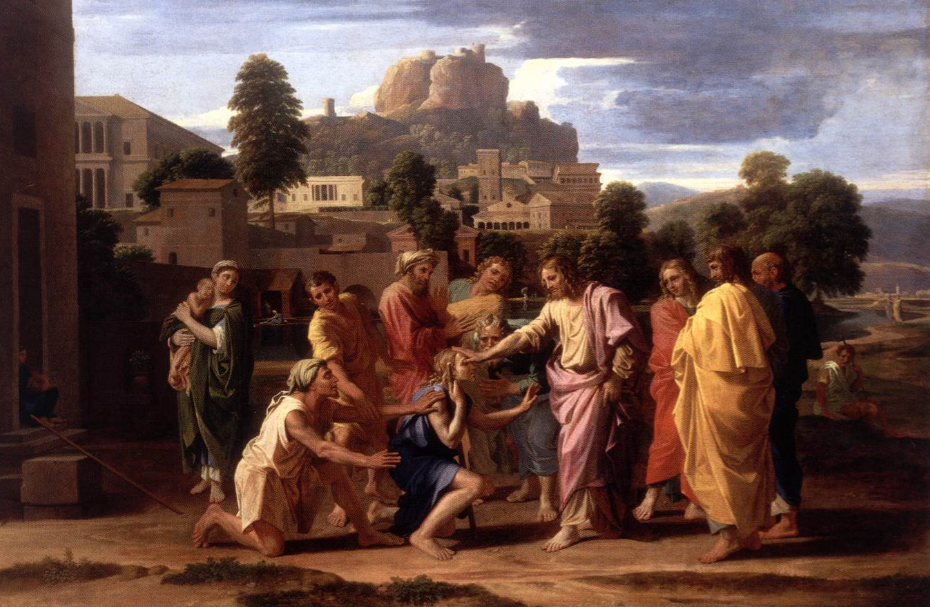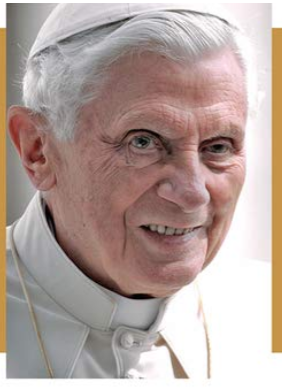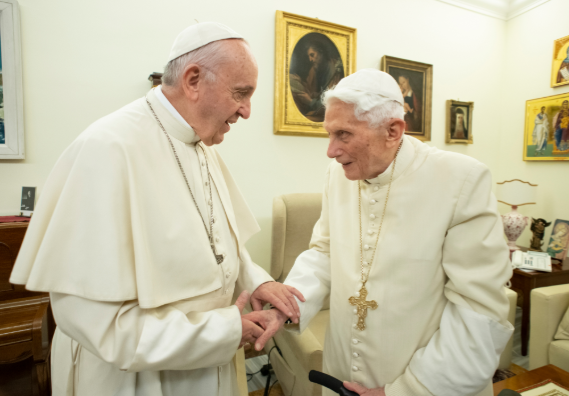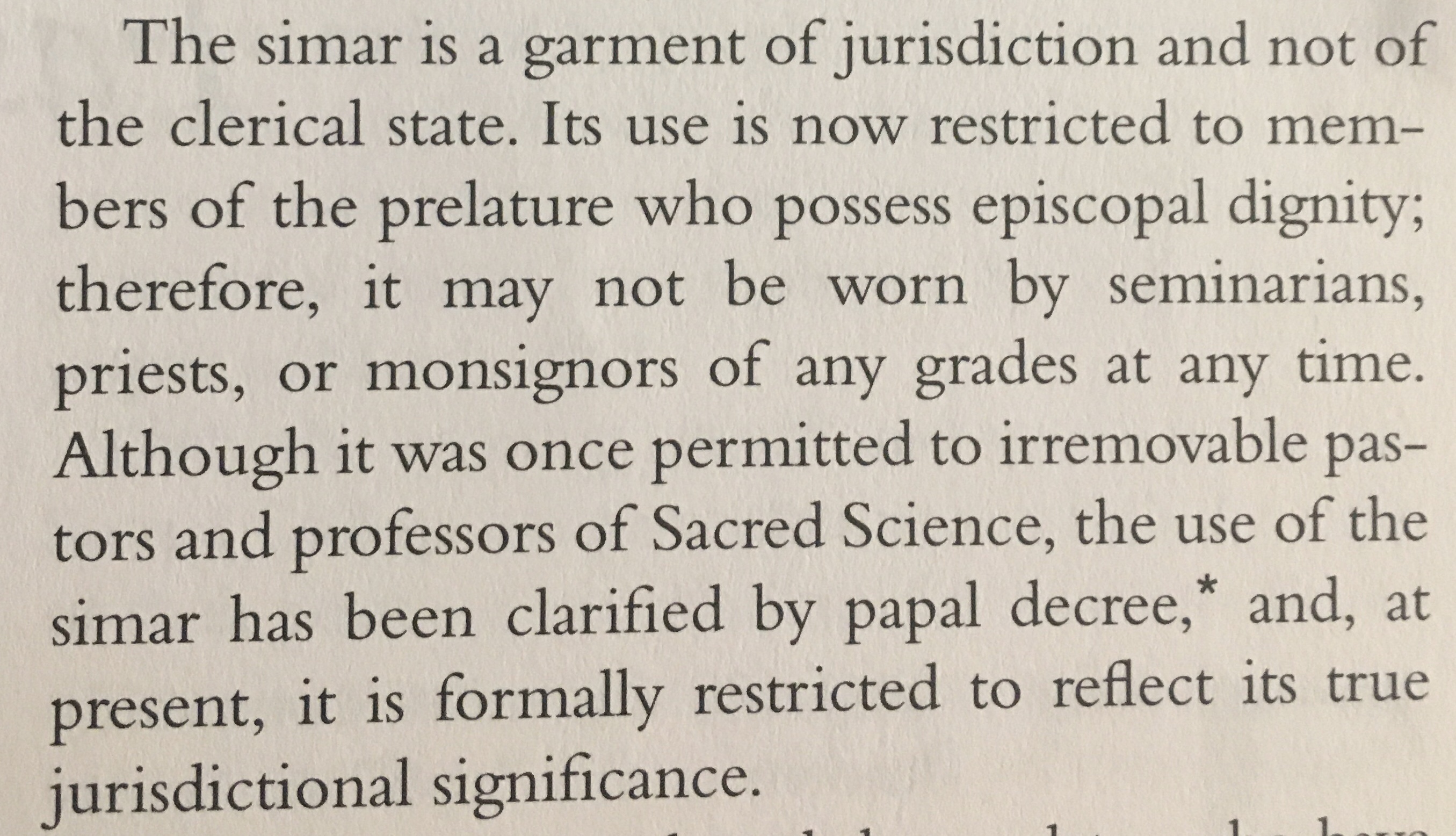Most of what follows appeared in an essay from 15 June 2019 HERE. I’ve reworked a few minor things and re-post it here, as the BiP Barnhardt Thesis continues to gain traction by the day.
———————————————–
Words have meaning; in the law, and in actions. That words are to be taken at face value, both in the law and in specific acts, is actually part of canon law. Everything presented here is done so according to the plain meaning of words, and you don’t need to be a genius to decipher it. Otherwise, it would be Gnosticism.
When it comes to the law, words matter; the plain and proper meaning of the words. This idea is so important, they wrote this canon specifically to address it:
Can. 17. Ecclesiastical laws must be understood in accord with the proper meaning of the words considered in their text and context. If the meaning remains doubtful and obscure, recourse must be made to parallel places, if there are such, to the purpose and circumstances of the law, and to the mind of the legislator.
In addition to the importance of words in the law itself, there is also the importance of words in any individual act, as found in Canons 36 and 38. These appear in the section of the code called:
TITLE IV. SINGULAR ADMINISTRATIVE ACTS (Cann. 35 – 93)
Can. 36 §1. An administrative act must be understood according to the proper meaning of the words and the common manner of speaking. In a case of doubt, those which refer to litigation, pertain to threatening or inflicting penalties, restrict the rights of a person, injure the acquired rights of others, or are contrary to a law which benefits private persons are subject to a strict interpretation; all others are subject to a broad interpretation.
As we saw in Canon 17, the phrase “the proper meaning of the words” is used, but this time it’s about administrative acts. It then goes on to explain, more or less, that in juridical matters pertaining to persons, those words are subject to a strict interpretation, whereas in other matters they are subject to a broad interpretation.
Can. 38. An administrative act, even if it is a rescript given motu proprio, lacks effect insofar as it injures the acquired right of another or is contrary to a law or approved custom, unless the competent authority has expressly added a derogating clause.
Canon 38 seems to be stating the obvious… an act which is contrary to law lacks effect. But the kicker is the last clause, which stipulates that if the competent authority expressly adds a derogating clause, the act DOES take effect, despite it being contrary to the letter of the law. This means an administrator, facilitating an act which he knows goes against some portion of the law, is able to validate the act by specifically (“expressly”) calling out the conflict, and exempting (“derogating”) his specific act from that aspect of the law, provided that the administrator has the “competent authority” to do so.
Now you may have heard it said that the pope is above the law; that canon law does not apply to him, because he is the supreme administrator. That notion is false. We know this because we have canons that specifically apply to popes and no one else. However, as supreme administrator, the pope does have the “competent authority” to abrogate or derogate whatever he wants, as we just saw from Canon 38. The thing is, he has to actually do the derogation. He has full power over the law, yet he is subject to the law as it is written. Father Brian Harrison has explained the concept this way:
“As supreme legislator, the pope may change any ecclesiastical law by officially and expressly abrogating it or derogating from it. But if he were to decree something which broke the law-that is, which acted against an existing ecclesiastical law without expressly adding a clause derogating from that law-then canon law itself (c. 38, 1983 Code; c. 46, 1917 Code) states that such a lawless action, even on the part of a “competent authority” (and that, of course, includes the pope) would have “no effect.”” HERE
Now let’s take a look at two very specific canons related to Pope Benedict’s failed partial attempted resignation, and apply what we just learned to the proper words of Benedict’s act and the proper words of the law. Example #1:
Can. 332.2 If it happens that the Roman Pontiff resigns his office, it is required for validity that the resignation is made freely and properly manifested but not that it is accepted by anyone.
We’ve beaten this one to death, right? He did not resign the Munus, he “resigned” the ministerio, so the resignation did not take effect. The combined force of Canons 17, 36, 38 tells us that his proper words did not properly manifest resigning the Office according to the proper words of the law, nor did he derogate any portion of the law in the Declaratio. The effect of his act was, as eye can plainly see, a mere delegation of the power of governance. Which conveniently bring us to Example #2:
Can. 131 §1. The ordinary power of governance is that which is joined to a certain office by the law itself; delegated, that which is granted to a person but not by means of an office.
Well. Isn’t that interesting?
Canon 131.1 appears in the section of the code called,
TITLE VIII. THE POWER OF GOVERNANCE (Can. 129 – 144)
Aside: This canon is very interesting in light of all the uncovered theological discourse about a “demythologized” synodal papacy, or a scenario where the ruling monarch might “delegate” part or all of his proper power of governance to a surrogate(s), in an arrangement akin to a Regency. In fact, I seem to recall that this notion was so widespread among contemporary theologians of the 1950s and 60s that someone actually wrote their doctoral dissertation on it, and then, the Gregorianum thought so highly of it, they published it as a book, which now can be yours for the low low price of USD$4.87.

Free preview (pg. 197, parenthetical mine):
“When contemporary theologians (i.e. Kung/Rahner/Kasper/Ratzinger/Dulles/Neumann) apply ius divinum to Roman primacy they do not thereby imply that there can be no changes in the way papal authority will be exercised in the future.”
To wit:
“In theory, the Petrine function could be performed either by a single individual presiding over the whole Church, or by some kind of committee, board, synod or parliament – possibly with a ‘division of powers’ into judicial, legislative, administrative, and the like” – Cardinal Dulles, 65 years ago
Let’s get back to Canon 131.1. Since we are talking about separating the governance of an office from the actual office itself, we better check the Latin to see if this really says what we think it says. It’s the only way to be sure.
Can. 131 — § 1. Potestas regiminis ordinaria ea est, quae ipso iure alicui officio adnectitur; delegata, quae ipsi personae non mediante officio conceditur.
Look. At. The. WORDS.
The ordinary power of governance is that which is joined to a certain office by the law itself. Now in the case of the Petrine Office, we are obviously talking about the active governance of the whole Church. So, what if the power of governance for the Petrine Office was “delegated” from the monarch to a regent? What does Canon 131.1 say happens in such a case? Look at the words.
It says that in such a case of delegation, the power of governance is transferred to the person of the regent, but not by means of an office. The monarch fully 100% retains the office and fully 100% retains his monarchy. Remember, Benedict could have chosen to derogate this clause (delegata, quae ipsi personae non mediante officio conceditur), in accord with Canon 38 as explained above, when he attempted to “resign”/delegate the active governance of the Church, but he did not. And since he did not, the force of the law remains in effect: Benedict is the sole occupant of the Office, even though he is no longer exercising the power of the office for the governance of the Church. Here, let him explain it:
“The “always” is also a “forever”…My decision to resign the active exercise of the ministry does not revoke this. I do not return to private life…I am not abandoning the cross, but remaining in a new way at the side of the crucified Lord. I no longer bear the power of office for the governance of the Church, but in the service of prayer I remain, so to speak, in the enclosure of Saint Peter. Saint Benedict, whose name I bear as Pope, will be a great example for me in this. He showed us the way for a life which, whether active or passive, is completely given over to the work of God.” – Pope Benedict, Last General Audience (so far), 27 February 2013





